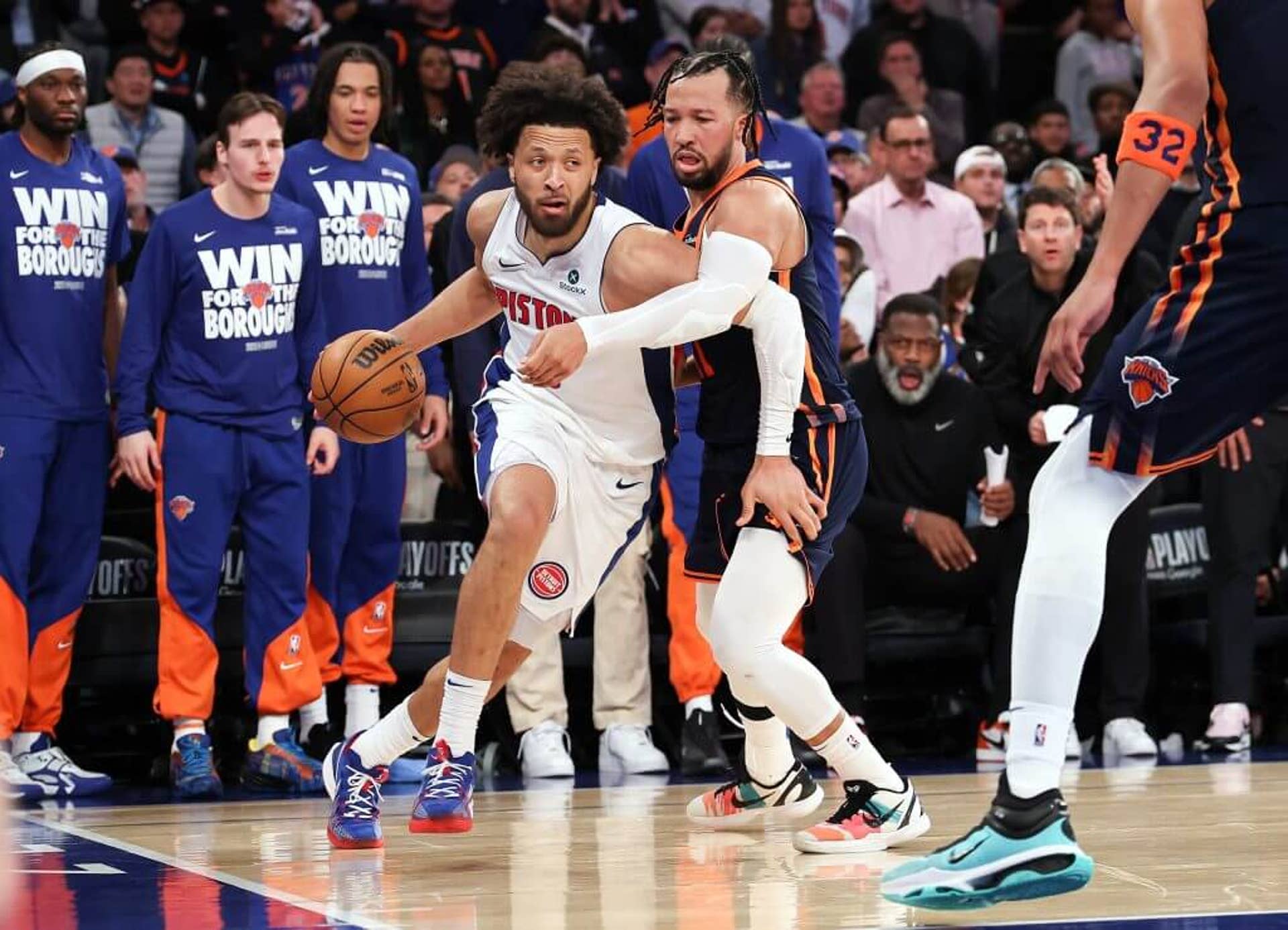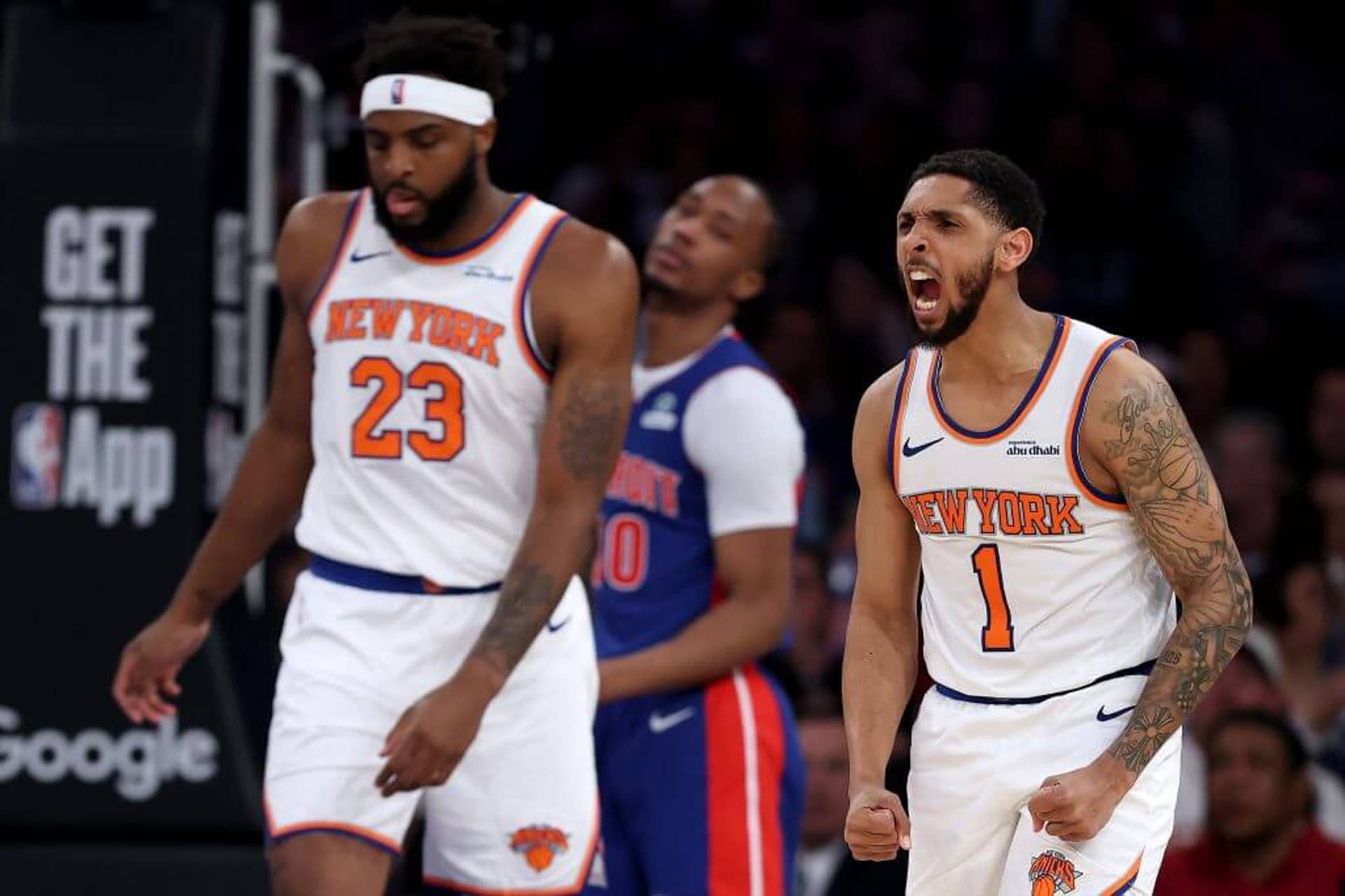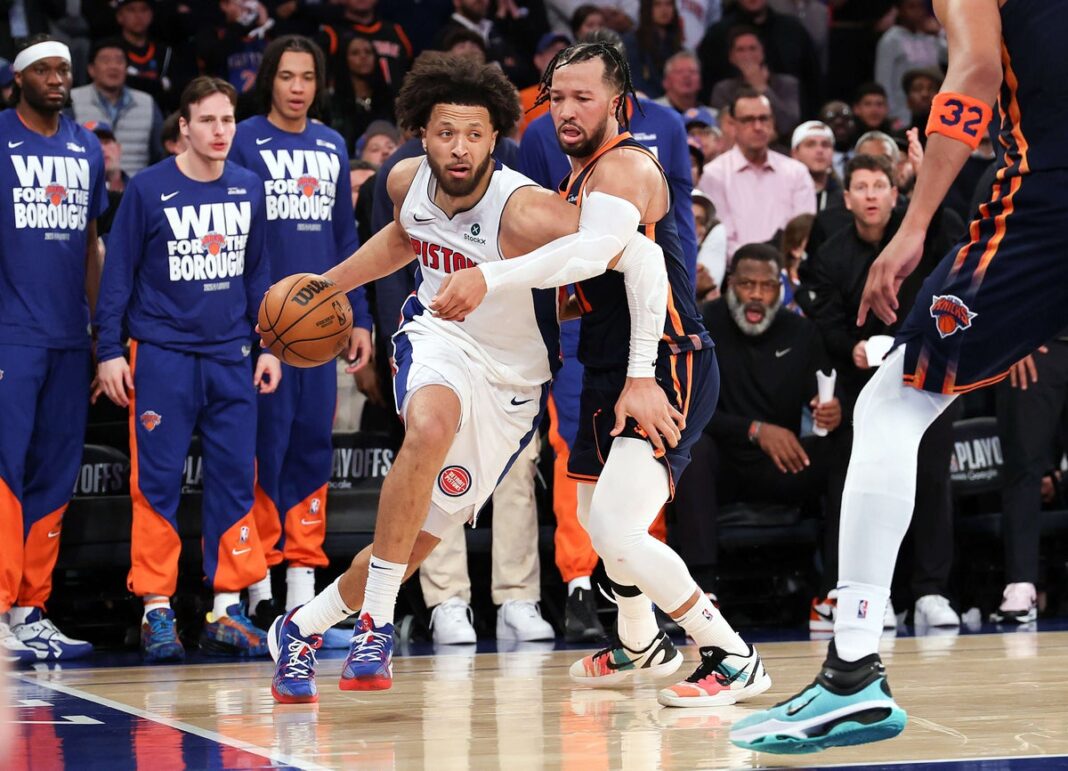The hardwood crackled with tension, each whistle a spark igniting a fiery debate. The Pistons and Knicks, locked in a physical, hard-fought series, found themselves entangled in a contentious battle not only on the court, but also in the minds of their coaches. Was it aggressive defense or blatant fouls? Lines blurred, tempers flared, and the officiating became a central talking point, leaving fans and analysts alike questioning the delicate balance between physicality and fair play. This isn’t just about basketball; it’s about the very fabric of the game – the rules, the interpretations, and the constant push and pull between physicality and restraint.
The Physicality Factor: Fouls Ignite Friction in Pistons-Knicks Series
Clashing Styles on the Court

The first-round NBA playoff series between the Detroit Pistons and New York Knicks has quickly become a physical battle, with contrasting coaching philosophies fueling a debate over foul calls. J.B. Bickerstaff, head coach of the Pistons, has embraced a style that emphasizes physicality and aggression, while Tom Thibodeau, leading the Knicks, prioritizes a more fluid offensive approach. This stylistic divergence has had a significant impact on the officiating, shaping the perception of disparity in foul calls.
Bickerstaff’s Pistons are known for their tenacity on defense, often employing physicality to disrupt their opponents’ offensive flow. This style has undoubtedly influenced the officiating, as referees tend to be more lenient with contact in playoff games where physicality is expected. On the other hand, Thibodeau’s Knicks rely heavily on ball movement and pick-and-roll action, a style that often requires a more delicate touch from referees to avoid disrupting the flow of the offense. This contrast in playing styles has created a situation where the Knicks perceive themselves as being disadvantaged by the officiating.
Free Throw Frenzy: A Battle of the Numbers
Highlighting the Disparity

The disparity in free throw attempts between Jalen Brunson, the Knicks’ point guard, and Cade Cunningham, the Pistons’ star rookie, has become a focal point of the controversy. Through the first two games of the series, Brunson has attempted 21 free throws, ranking second in the playoffs behind Giannis Antetokounmpo. Cunningham, meanwhile, has attempted 17 free throws, placing him fourth in the playoffs.
A Deeper Look at the Context
While the raw numbers seem to suggest a clear disparity in foul calls, it’s important to consider the broader context. Both Brunson and Cunningham are highly talented players who drive to the basket frequently. Brunson, known for his crafty dribbling and ability to draw contact, has historically been a high-volume free throw shooter. Cunningham, on the other hand, is a more physical player who attacks the basket with power and aggression, often leading to contact.
The difference in free throw attempts could be attributed to a combination of factors, including playing style, offensive role, and the officiating crew’s interpretation of fouls. It’s possible that the referees are simply calling fouls more consistently on contact involving Cunningham, given his physical style of play. Alternatively, it’s conceivable that Brunson is drawing fouls more effectively, forcing defenders into contact and drawing advantageous calls.
The Broader Debate
The specific circumstances surrounding the Pistons-Knicks series highlight a broader debate in the NBA regarding officiating consistency and perceived biases. Teams and coaches often express frustration when they believe the officiating is not impartial, claiming that certain teams or players are being favored. This perception of disparity can fuel tension and controversy, leading to heated exchanges and public criticism.
The NBA’s officiating crew, comprised of highly skilled individuals who undergo rigorous training and evaluation, strives to maintain consistency and fairness in their calls. However, the subjective nature of officiating, coupled with the fast-paced and physically demanding environment of the game, inevitably makes it challenging to avoid occasional inconsistencies and controversial calls.
Beyond the Stripes: The Intangibles of the Physicality Debate
Psychological Impact of Foul Calls
The perceived unevenness of officiating can have a profound psychological impact on both teams. For the Knicks, the frustration of seeing Brunson potentially denied opportunities to score from the free-throw line could erode player confidence and affect their overall performance. Conversely, the Pistons, seemingly benefitting from the officiating discrepancy, might experience a surge in confidence and aggression, potentially leading to more physical play and further exacerbating the situation.
In high-stakes environments like the playoffs, even subtle shifts in momentum can be magnified. If the Knicks perceive a lack of fairness, it could lead to a decrease in focus and execution, while the Pistons might become more assertive, believing they have an advantage.
Escalation Potential
The tension between the coaches and their players could escalate, potentially leading to further animosity and even fines. Thibodeau’s public criticism of the officiating has already sparked a response from Bickerstaff, and the situation could escalate if the perceived disparity in foul calls continues.
Such a scenario could create a hostile environment on the court, further impacting the game’s integrity and potentially distracting players from their primary objective: winning.
Looking Ahead: Can the Knicks Adjust?
Thibodeau’s Strategy
Thibodeau faces a delicate challenge in addressing the officiating discrepancy. While publicly criticizing officials might garner support from his players and fans, it could also draw further scrutiny from the league and potentially lead to repercussions.
A more nuanced approach might involve adjusting the Knicks’ game plan to mitigate the impact of the foul calls. This could involve emphasizing ball movement, reducing isolation plays, and encouraging Brunson to be more selective in his drives to the basket.
Impact on the Series
The physicality factor undoubtedly plays a significant role in this series. If the Knicks can find a way to overcome the perceived foul disadvantage, they have the talent and experience to compete with the Pistons. However, if the officiating discrepancy continues, it could create a significant obstacle for the Knicks, potentially allowing the Pistons to capitalize on their physical edge and advance to the next round.
The outcome of this series hinges on several factors, including the Knicks’ ability to adjust their approach, the officiating consistency, and the players’ ability to maintain their composure amidst the physicality and tension.
Conclusion
The recent Pistons-Knicks series has ignited a heated debate about foul calls, highlighting the inherent subjectivity in officiating and its profound impact on the game. Both coaches, Dwane Casey of the Pistons and Tom Thibodeau of the Knicks, voiced their frustrations, each believing the calls tilted in the other’s favor. The article dissects their arguments, pointing out the specific instances that fueled their ire and analyzing the broader implications of these controversial calls.
This clash underscores a fundamental tension in basketball: the delicate balance between protecting players and allowing for physicality. The NBA’s constant evolution in officiating, seeking to strike this balance, inevitably leads to disagreements. As the game becomes faster and more aggressive, the line between legitimate contact and a foul becomes increasingly blurred. This debate isn’t confined to this single series; it reflects a larger conversation about the role of officiating in shaping the narrative of the game. The Pistons-Knicks clash serves as a potent reminder that while the rules provide a framework, the human element of officiating remains a constant source of discussion and, at times, controversy.
Moving forward, the NBA faces the challenge of refining its approach to officiating, seeking greater consistency and transparency. The evolving nature of the game demands an ongoing dialogue between players, coaches, and officials, striving to ensure that the game’s integrity is preserved while allowing athletes to compete at the highest level. The Pistons-Knicks series serves as a stark reminder: in basketball, as in life, the line between right and wrong, between fair and foul, is often a matter of perspective.
